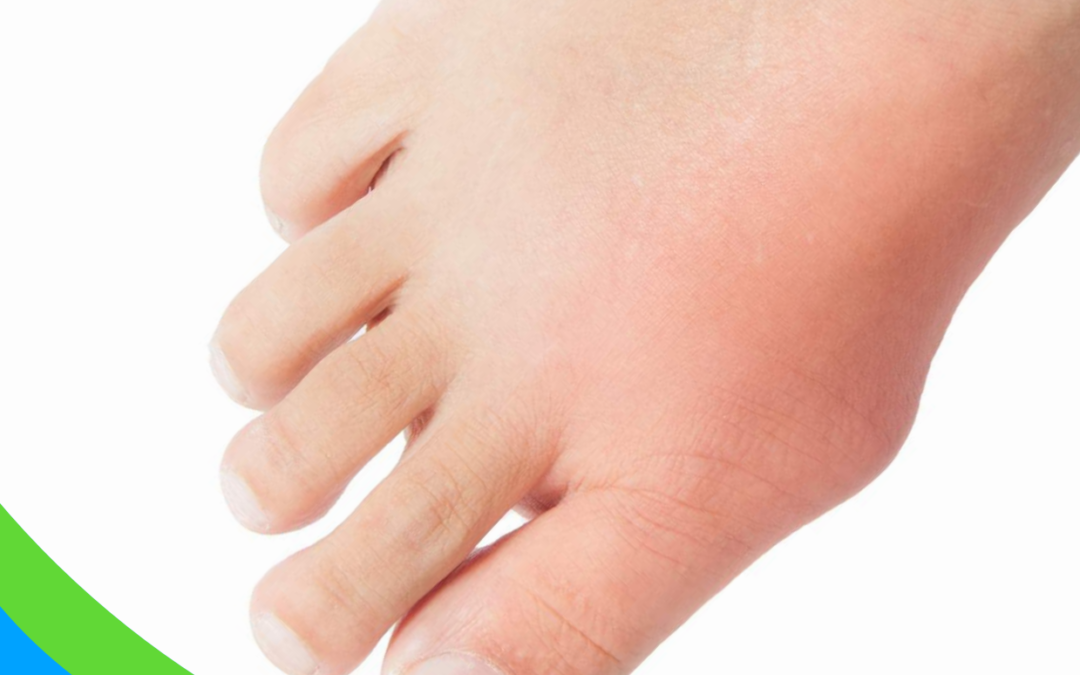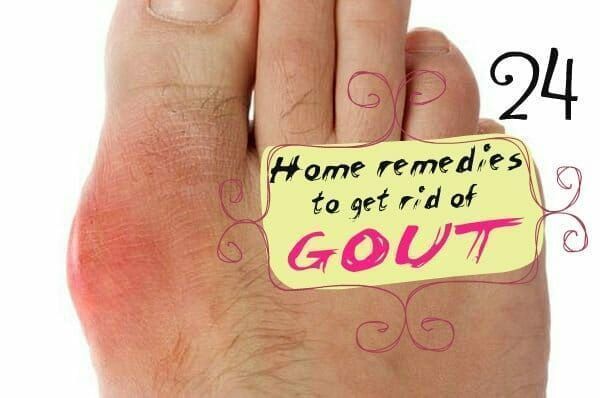The Role Of Medication In Prevention Of Gout
Table 3: Medications to pevent attacks of gout
Standard medications in preventing gout attacks
i. Colchicine : using the matches analogy discussed above1, using colchicine can be seen as dampening the uric acid matches. Colchicine does not lower the bodys store of uric acid, but it decreases the intensity of the bodys inflammatory reaction to these crystals. Recent studies have shown that at least one mechanism of colchicines action is by acting to prevent a cascade of reactions that lead to the production of interleukin 1-beta, which is an inflammatory protein , which is important in gouty inflammation.8
ii. Allopurinol: This agent is presently the most commonly used drug for the prevention of gout. Allopurinol blocks the enzyme xanthine oxidase, which blocks the breakdown of purines, thus decreasing the bodys total amount of uric acid. Allopurinol is effective in preventing gout no matter what the mechanism of the elevated uric acid was. Whether a person is making too much uric acid, or has difficulty excreting it via the kidney, allopurinols decrease in uric acid production leads to the same goal: a decreased total body uric acid.
Table 4: Reasons to use medication to lower uric acid
How Can I Manage My Gout And Improve My Quality Of Life
Gout affects many aspects of daily living, including work and leisure activities. Fortunately, there are many low-cost self-management strategies that are proven to improve the quality of life of people with gout.
For gout in particular:
- Eat a healthy diet. Avoid foods that may trigger a gout flare, including foods high in purines , and limit alcohol intake .
CDCs Arthritis Program recommends five self-management strategies for managing arthritis and its symptoms. These can help with gout as well.
Numbness And Tingling What Do They Indicate
The painfully weird feeling of tingling sensation occurs usually in our legs, feet, arms, or fingers. This happens when we dont move a part of our body for a while without changing its position. I say that this tingling sensation are painfully weird because in some cases, this feeling is not always entirely painful at all. Sometimes it can be just a weird feeling which makes it annoying and irritating, but not in the case of gout.
The condition of having too many acids in the body also known as Acidosis is the cause of the feeling of tingling and numbness.
Generally, numbness and tingling can be caused by three things:
- Use of certain medicines
- Peripheral nerves are damaged
- Lack of blood supply to the affected area.
In the case of acidosis, lack of blood supply and peripheral nerve damage is the cause of numbness and tingling.
Due to the thickening of the blood, the pumping of blood done by the circulatory system will be harder. Thick blood, combined with endothelial dysfunction, can lead to lack of blood supply which can lead to cell damage which triggers numbness and tingling.
Read Also: Is Pistachio Bad For Gout
Symptoms And Signs Of Gout In Foot
An attack of gout is often sudden. Symptoms:
- It may present with excruciatingly painful swelling of joints in the big toe, it is known as Podagra. The joint may be stiff and appear red or purple, very swollen, and tender to even light touch. Other gout sites include the instep, wrist, ankle, fingers, and knee.
- Skin may peel and itch as healing begins.
- An attack often begins at night the acute phase lasts up to 12 hours. If untreated, the inflammation may last up to two weeks. In 10 percent of people, acute episodes present in more than one joint.
- Kidney stones precede the onset of gout in 14 percent of patients.
- Chronic gout may develop, and it may affect more than one joint, mimicking rheumatoid arthritis.
- Tophi are soft tissue swellings caused by urate buildup in chronic gout. They may be found in the ear, fingers, toes, kneecap, and elbow.
Some people have a single attack of gout, others are affected intermittently, often when they have overindulged or experienced dehydration.
COMPLICATIONS OF GOUT IN FOOT
Its rare for complications of gout to develop, but they do happen and can include severe degenerative arthritis, secondary infections, kidney stones and kidney damage, nerve or spinal cord impingement, and joint fractures.
What Can Increase Your Risk

A high level of uric acid in the blood is the main factor that increases your risk of developing gout. However, it’s still uncertain why some people with a high level of uric acid in the blood develop gout, while others with an equally high level don’t.
Other factors that may increase your risk of developing gout are outlined below.
Also Check: Almond Good For Gout
How Will Gout Affect Me
Attacks can vary from person to person. Some people only have an attack every few years, while others have attacks every few months.
Without medication attacks tend to happen more often and other joints can become affected.
Having high urate levels and gout for a long time can lead to other health problems, including:
- narrowing of the arteries – which can lead to an increased risk of stroke or heart attacks or other heart problems
- osteoarthritis, which occurs when the urate crystals and hard tophi cause joint damage.
- an increased risk of developing kidney disease or worsening of the condition if you already have it
- kidney stones
- an increased risk of some cancers, especially prostate cancer
- mental health problems, including depression
- underactive thyroid
- erectile dysfunction in men.
If you take medication to lower your urate levels, and have a healthy diet and lifestyle, most of the damage and complications caused by gout can be stopped.
Treatments for gout are incredibly successful. There are two main parts to treating gout, which are:
- treating the acute attack
- treatments to prevent future attacks.
Is Knee Pain Due To Gout Or Something Else
Most people with gout in the knee experience intense pain during a gout attack. Swelling may also be noticeable during an active flare, as well as redness and warmth.
The pain may develop in the night and hurt continuously for up to two weeks before the flare subsides, with the most intense pain in the first 24 hours. But if gout is not treated, typically with medication to lower uric acid levels, gout flares will recur and over time and affect more joints, including the knee.
Doctors cant say for sure why gout flares occur more often at night but, according to a 2015 study, it might be because your body temperature goes down at night, which could make uric acid more likely to crystallize.
Although the pain of a gout attack is distinct, there may be other reasons for your knee pain you should be aware of.
Pseudogout
Your knee pain could be caused by buildup of different kinds of crystals called calcium pyrophosphate . Doctors can examine fluid in your inflamed knee to determine if the crystals are uric acid or calcium pyrophosphate.
Recommended Reading: Gout And Tofu
Get An Accurate Diagnosis And Treatment
While gout attack symptoms do resolve on their own, people are advised to seek medical treatment. If left untreated, gout can become chronic and cause lasting joint damage.
Diagnosis begins with a clinical exam and interview. Patients are encouraged to be honest with their health care providers about their eating, drinking, and other lifestyle habits. This honesty can be helpful both for diagnosing gout and creating a treatment plan. Diagnosis may also involve blood tests, urine tests, and medical imaging, such as x-rays and ultrasound.
See Gout Diagnosis
Treatment typically involves advice to avoid alcohol and certain foods known to trigger gout, such as foods and drink high in sugar, seafood, red meat, and organ meats.19 Medications to lower urate levels in the bloodâwhich can lead to gout attacksâare often recommended. Losing excess weight is another effective way to reduce the risk of a gout attack and chronic gout.20
See Gout Treatment
Genes And Family History
Research over the past decade has increasingly identified a link between a genetic predisposition and high uric acid levels. For example, in a 2012 study, researchers looking at a large number of peoples unique genomes found that patients with gout often shared a similar variation on a gene that affects kidney function. A 2018 study further identified several genes that influence how the body gets rid of uric acid.
You May Like: Is Onions Good For Gout
Can It Lead To Any Complications
If left unmanaged, gout-related inflammation can cause permanent damage to your knee joint, especially if you have frequent flare-ups.
Over time, lumps of uric acid crystals, called tophi, can also form around your knee. These lumps arent painful, but they can cause additional swelling and tenderness during a flare-up.
What Are The Causes And Triggers Of Gout In The Knee
The buildup of uric acid in the body is known as hyperuricemia. Your body produces uric acid when it breaks down purines. These are compounds found in all your cells. You can also find purines in several types of food, especially red meat and some seafood, as well as alcohol and some sugar-sweetened drinks.
Usually, uric acid passes through your kidneys, which help to eliminate extra uric acid in your urine. But sometimes, theres too much uric acid for your kidneys to handle. In other cases, the kidneys cant process typical amounts of uric acid due to an underlying condition.
As a result, more uric acid circulates throughout your body, ending up in your knee as uric acid crystals.
4 percent of adults in the United States. It tends to be more common in men because women usually have lower levels of uric acid. But after menopause, women start to have higher uric acid levels. As a result, women tend to develop gout at an older age than men do.
Experts arent sure why some people produce more uric acid or have trouble processing it. But theres evidence that the condition is often genetic.
Other things that may increase your risk of developing gout include:
- consuming a lot of high-purine foods
- consuming foods and drinks, especially alcohol, that increase uric acid production
- being overweight
Don’t Miss: Almond Milk Gout
How Is Gout In The Knee Diagnosed
If you think you might have gout but havent been diagnosed, try to see a doctor while youre having symptoms. Gout is easier to diagnose when youre in the middle of a flare-up, especially one thats causing swelling, redness, and other visible symptoms.
During your appointment, your doctor will likely ask you several questions about your diet, any medications you take, and whether you have a family history of gout. This can help to rule out other potential causes of your symptoms, including an infection or rheumatoid arthritis.
Your doctor may also order a blood test to check your uric acid levels. Some people have high levels of uric acid and dont develop gout. Others have typical uric acid levels but still develop gout. As a result, your doctor will want to do some other tests as well.
An X-ray, MRI, or CT scan of your knee can help to eliminate other possible causes of joint inflammation. Depending on your exam, your doctor may also order an ultrasound to check for the presence of crystals in your knee.
Finally, they might do a joint fluid test. This involves taking a small sample of joint fluid from your knee with a small needle and looking at it under a microscope for any uric acid crystals.
Based on the results of your exam and tests, they may refer you to an inflammatory arthritis specialist called a rheumatologist for treatment.
What Are The Symptoms Of Gout In The Knee

The main symptom of gout in the knee is pain and discomfort in the surrounding area. Keep in mind that gout is often unpredictable, regardless of the joint its affecting. You might go weeks or even months without any symptoms, only to wake up with a burning pain in your knee.
In some cases, gout starts out in one of your big toes before moving on to other areas, such as your knee. Over time, these flare-ups may last longer than previous episodes.
Other symptoms you might feel from gout in your knee include:
- tenderness
Also Check: Pistachios Nuts And Gout
How Is Pseudogout Treated
The type of pseudogout treatment depends on several factors, including your age, other medications youâre taking, your overall health, your medical history, and how severe the attacks are. Drugs to treat pseudogout include:
- Anti-inflammatory painkiller drugs, also calledNSAIDs, generally are prescribed to treat sudden and severe pseudogout attacks. NSAIDs — like ibuprofen and naproxen — usually reduce inflammation and pain within hours.
- Corticosteroids may be prescribed if you canât take NSAIDs. Steroids also work by decreasing inflammation. They can be injected into the affected joint or given as pills.
- Colchicine, a gout drug, is sometimes used in low doses for a longer period of time to reduce the risk of repeated attacks of pseudogout.
Anti-inflammatory medications are usually continued until the pseudogout attack goes away. Symptoms are often better within 24 hours after treatment begins.
Show Sources
What Does It Mean When Your Foot Arch Hurts
Plantar fasciitis is the most common cause of arch pain and one of the most common orthopedic complaints reported. Its caused by inflammation, overuse, or injury to the plantar fascia. The plantar fascia is the ligament that connects the front of your foot to your heel.
Don’t Miss: Almonds And Gout
How Long Does Gout In The Knee Last
Gout flare-ups can last for several hours at a time, but you may feel pain in your knee for days or weeks. Some people only have one flare-up in their life, while others have them several times a year.
Keep in mind that gout is a chronic condition, meaning it lasts for a long time and requires ongoing management. Dietary changes and medications can make a big difference, but youll also be at risk of having a flare-up.
Keep in mind that it can also take some time to find the right combination of diet changes and medication that works for you. Dont be discouraged if things dont seem to be improving right away.
Signs And Symptoms Of Gout
Any joint can be affected by gout, but it usually affects joints towards the ends of the limbs, such as the toes, ankles, knees and fingers.
Signs and symptoms of gout include:
- severe pain in one or more joints
- the joint feeling hot and very tender
- swelling in and around the affected joint
- red, shiny skin over the affected joint
Symptoms develop rapidly over a few hours and typically last three to 10 days. After this time the pain should pass and the joint should return to normal.
Almost everyone with gout will experience further attacks at some point, usually within a year.
Read more about the complications of gout.
Also Check: Are Onions High In Purines
How Do Health Care Providers Diagnose Gout
The most reliable method to diagnose gout is by demonstrating uric acid crystals in joint fluid that has been removed from an inflamed joint . Specially trained physicians, such as a rheumatologist or orthopedist, can carefully remove fluid from the joint. The fluid is then examined under a microscope to determine if uric acid crystals are present. This is important because other medical conditions and diseases, such as pseudogout and infection, can have symptoms similar to gout.
What Are Future Possible Treatments Of Gout
Fortunately, present medications are successful in the vast majority of gout patients. But some patients cannot tolerate our present arsenal of gout medications. For others, these agents are not sufficiently effective. Therefore, new treatments are continually being sought. Some of the more promising include anakinra, rilonacept, canakinumab, BCX4208 and arhalofenate.
Don’t Miss: Onions Bad For Gout
What Are The Symptoms Of Gout In The Ankle
The main symptom of gout in the ankle is pain and discomfort in the surrounding area. Keep in mind that gout is often unpredictable, regardless of the joint its affecting. You might go weeks or even months without any symptoms, only to wake up with a burning pain in your ankle.
In some cases, gout starts out in one of your big toes before moving on to other areas, such as your ankle. Over time, these flare-ups may last longer than they previously did.
Other symptoms you might feel from gout in your ankle include:
- tenderness
Can You Remove Gout

It ought to be fairly noticeable why youd need to get rid of gout, but is it possible actually?
Sure will be, but theres not just a one-size will fit all solution.
Within the next section, well come to be going over whats worked ideal for us!
You wont want to lose out on this free video clip.
NOTICE: Id highly recommend going to your doctor or seeing a specialist about this situation, since we arent experts. See our medical disclaimer for more details.
We dont know what will work for you, but we know whats worked for us and others
Also Check: Allopurinol Side Effects Alcohol